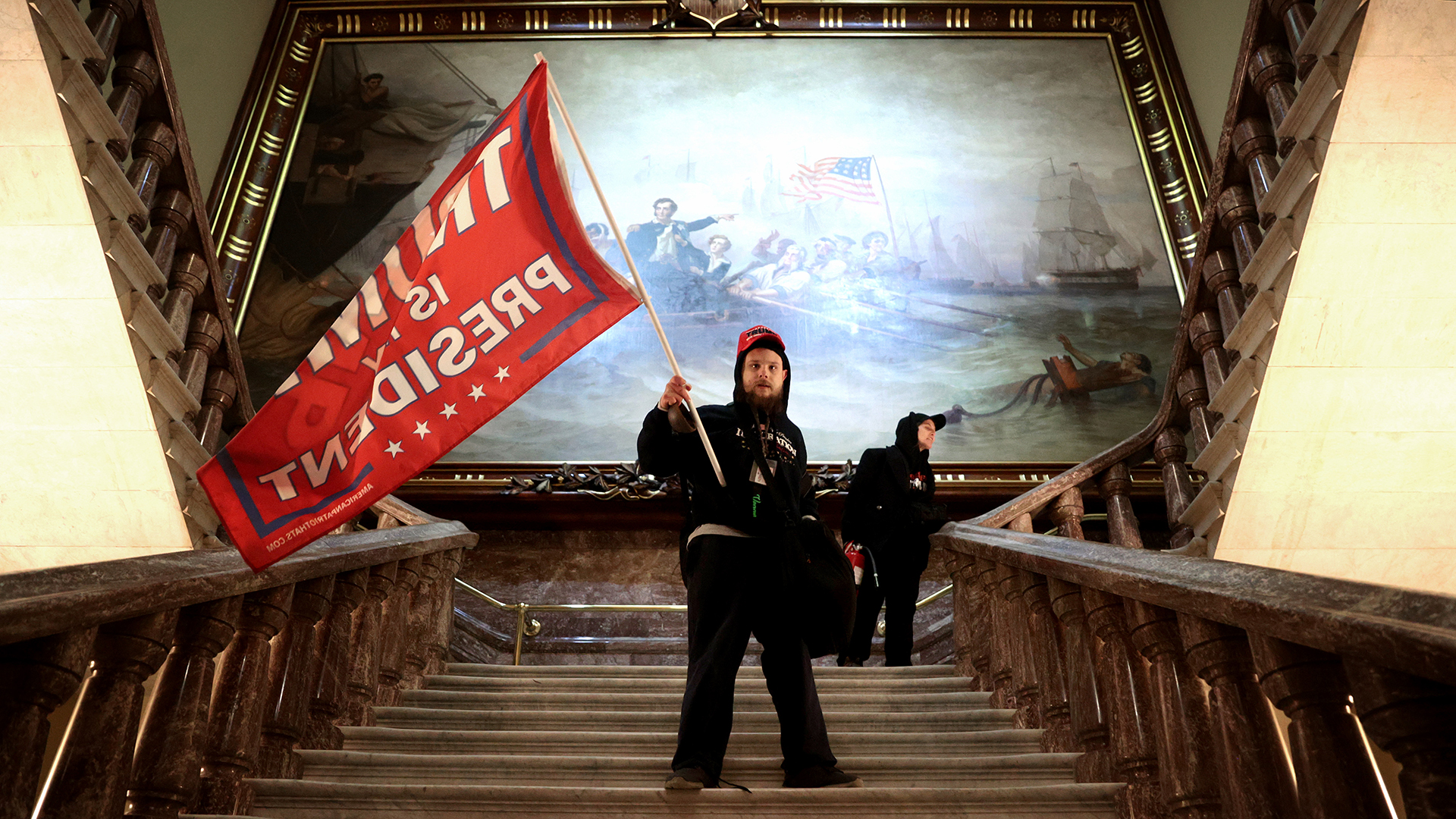What is sedition?
The term's legal definition has changed over time.

On Wednesday (Jan. 6), armed supporters of President Donald Trump forced their way into the U.S. Capitol in Washington, D.C., waving Confederate and pro-Trump flags as they stormed the steps and breached the building. Shortly before the rioters broke into the Capitol, President Trump spoke at a rally saying "we will never concede," referring to the election that he lost to President-elect Joe Biden by more than 7 million votes, The New York Times reported. Trump also encouraged his followers to march on the Capitol, according to The Times.
President-elect Biden said in a statement: "This is not dissent. It's disorder, it's chaos, it borders on sedition." But what exactly is sedition? The term describes acts or words encouraging insurrection against the government.
Sedition differs from treason — "levying war" against the United States, or lending aid and comfort to its enemies — and treason is the only crime defined by the U.S. Constitution. But even though sedition is not constitutionally defined, it has been part of this country's legal landscape since the 18th century.
Related: The 6 strangest presidential elections in US history
The first federal enactment of a law against sedition was in 1798, when the Federalist-controlled government feared that internal dissent would weaken America as it prepared for war with France. The Alien and Sedition Acts, signed into law by President John Adams on July 14 that year, included four laws, one of which declared it illegal to criticize the government, punishable by fines and imprisonment, according to the National Archives.
However, many Americans at the time saw the Sedition Act as a dangerous suppression of free speech — "clearly a tool for political repression," the National Archives says — and the law was highly unpopular. Under the Sedition Act, Thomas Cooper, a lawyer and newspaper editor, was indicted, prosecuted and convicted in Philadelphia, after publishing an article that strongly criticized President Adams. Cooper was imprisoned for six months and charged a fine of $400, with additional penalties of $2,000 required after his sentence was served, according to court transcripts.
Public backlash to the Sedition Act likely strengthened the Democratic-Republican party and contributed to their victory over the Federalists in the 1800 elections. Adams lost the presidency to Thomas Jefferson and the law expired on March 3, 1801, according to the U.S. House of Representatives.
Related: Why did the Democratic and Republican parties switch platforms?
Disloyal, profane and scurrilous
The Sedition Act of 1918 also emerged during a time of war. Proposed by congressional leaders and President Woodrow Wilson in response to growing disapproval of the U.S. involvement in World War I, it served as an amendment to the Espionage Act of 1917, according to the Free Speech Center at Middle Tennessee State University (FSC).
Under the new law, it was a federal crime to "willfully utter, print, write, or publish any disloyal, profane, scurrilous, or abusive language about the form of the Government of the United States" or to "willfully urge, incite, or advocate any curtailment of the production" of the things "necessary or essential to the prosecution of the war," according to PBS. In 1919 and 1920, the government prosecuted over 2,000 people and convicted more than 1,000 of sedition, levying fines up to $10,000 and assigning prison sentences of as much as 20 years, the FSC says.
As with the original Sedition Act, the new law was extremely unpopular. It drew widespread criticism for targeting people who opposed the war but whose words "posed no danger to the government or its war effort," according to the University of Montana School of Journalism's Montana Sedition Project. It was finally repealed in 1920, though much of the Espionage Act remains intact, according to the FSC.
Based on laws going back to 1948, sedition is currently recognized as a criminal act (Chapter 115: Treason, Sedition and Subversive Activities), alongside treason; rebellion or insurrection; advocating overthrow of the government; and recruiting for service against the United States, according to the United States Code, a list of U.S. laws maintained by the Office of the Law Revision Counsel of the U.S. House of Representatives.
For now, it remains to be seen how breaking into the Capitol building — and inciting people to do so — will be defined by U.S. law.
Originally published on Live Science.
Sign up for the Live Science daily newsletter now
Get the world’s most fascinating discoveries delivered straight to your inbox.

Mindy Weisberger is an editor at Scholastic and a former Live Science channel editor and senior writer. She has reported on general science, covering climate change, paleontology, biology and space. Mindy studied film at Columbia University; prior to Live Science she produced, wrote and directed media for the American Museum of Natural History in New York City. Her videos about dinosaurs, astrophysics, biodiversity and evolution appear in museums and science centers worldwide, earning awards such as the CINE Golden Eagle and the Communicator Award of Excellence. Her writing has also appeared in Scientific American, The Washington Post and How It Works Magazine. Her book "Rise of the Zombie Bugs: The Surprising Science of Parasitic Mind Control" will be published in spring 2025 by Johns Hopkins University Press.










